Originally posted on Wednesday, August 31, 2011, 5:20:00 PM
Great Grandpa Walpole

Horace Walpole (1717 – 1797)
“Posterity always degenerates till it becomes our ancestors.” – Horace Walpole
The horror genre, like it or not, has its roots deeply in Gothicism. In fact, although today gothic lit is a subgenre of horror, horror sprang from Gothicism. We have Mr. Walpole to thank for that.
Read: The Castle of Otranto, 1764
Great Aunt Radcliffe
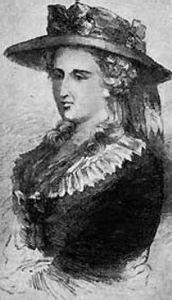
Ann Radcliffe (1764 – 1823)
“It is women who bear the race in bloody agony. Suffering is a kind of horror. Blood is a kind of horror. Women are born with horror in their very bloodstream. It is a biological thing.” –Bela Lugosi
Ah, the first matriarch of the genre. You quite simply have to love her – long-windedness and innocence be damned. I talk about Radcliffe in my discussion of horror and terror, here.
Read: The Mysteries of Udolpho, 1794
Great Creepy Uncle Lewis

Matthew Lewis (1775–1818)
“Matthew Lewis [was] the genre’s first punk, the Johnny Rotten of the Gothic novel.” – Stephen King
Lewis used Radcliffe and Walpole’s ideas and twisted them all to hell. Talk about embracing the dark side. This is one uncle you don’t want at your family reunion.
Read: The Monk, 1796
Mammy Shelley
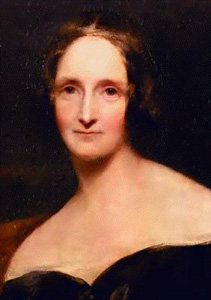
Mary Shelley (1797 – 1851)
“…Monsters are real, and ghosts are real too. They live inside us, and sometimes, they win.” –Stephen King
Ms. Shelley’s is the first gothic horror novel to be considered literary. She also, arguably, helped fuel the zombie genre. For that, I salute her.
Read: Frankenstein: or, The Modern Prometheus, 1818
Papa Poe
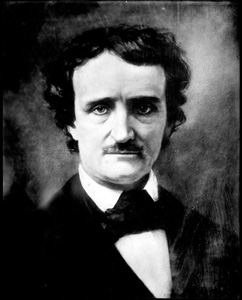
Edgar Allan Poe (1809 – 1849)
“Poe was the first writer to write about main characters who were bad guys or who were mad guys, and those are some of my favorite stories.” – Stephen King
“Now all of my mail goes out with a picture of Poe on the cover, and under that stamp I always write: ‘My Papa.’” — Ray Bradbury
Papa Poe. The first American writer to popularize the scary, dark underworld of the macabre. We all owe him homage, from sci-fi to mystery to poetry to horror. I sing Poe’s praises here and here.
Read: short stories such as “The Tell-Tale Heart,” in the collected works of Edgar Allan Poe, 1843
Great Aunties Bronte
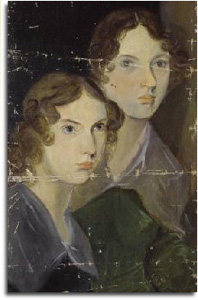
Emily Bronte (1818 – 1848)
Charlotte Bronte (1816 – 1855)
“The intense horror of nightmare came over me: I tried to draw back my arm, but the hand clung to it, and a most melancholy voice sobbed, ‘Let me in – let me in!’” — Emily Brontë (Wuthering Heights)
“”Of the foul German spectre – the Vampyre.”” –Charlotte Brontë (Jane Eyre)
It is, perhaps, unfair to clump these two fearless ladies together… but it’s so convenient. Welcome to the crew, Sisters Grimm.
Read: Wuthering Heights, 1847 & Jane Eyre, 1847
Great Uncle Stevenson
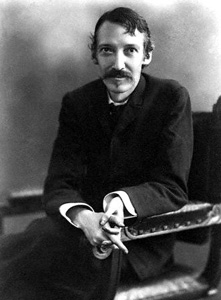
Robert Louis Stevenson (1850 – 1894)
“Quiet minds cannot be perplexed or frightened but go on in fortune or misfortune at their own private pace, like a clock during a thunderstorm. ” — Robert Louis Stevenson (Dr. Jekyll & Mr. Hyde)
Yet another horror author who has managed to earn the qualifier of “literary,” paving the way for us all.
Read: Strange Case of Dr Jekyll and Mr Hyde, 1886
Great Uncle Wilde
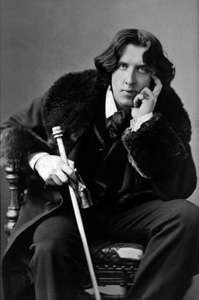
Oscar Wilde (1854 – 1900)
“The public is wonderfully tolerant. It forgives everything except genius.” –Oscar Wilde, The Critic as Artist, 1891
For ghouls like me, Dorian Gray was the best part of English class in high school.
Read: The Picture of Dorian Gray, 1890
Great Step Uncle Twice Removed Stoker
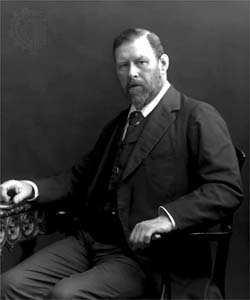
Bram Stoker (1847 – 1912)
“Listen to them – children of the night. What music they make.” — Bram Stoker, Dracula
Who doesn’t love their great step uncle twice removed? I know I do.
Read: Dracula, 1897
Great Uncle James
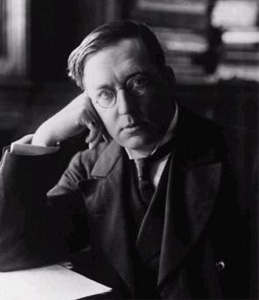
M. R. James (1862 – 1936)
“Reticence may be an elderly doctrine to preach, yet from the artistic point of view I am sure it is a sound one. Reticence conduces to effect, blatancy ruins it.” –MR James
I admit that I haven’t read anything by MR James. But based on how many scholars consider him influential, he’s gone to the top of my to-read list.
Read: Ghost Stories of an Antiquary, 1904
Great Uncle Lovecraft
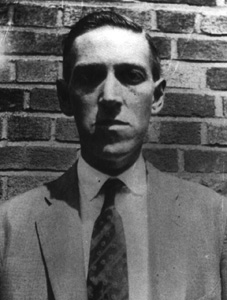
H. P. Lovecraft (1890 – 1937)
“[Lovecraft has exerted] an incalculable influence on succeeding generations of writers of horror fiction.” –Joyce Carol Oates
“[Lovecraft is] the twentieth century’s greatest practitioner of the classic horror tale.” –Stephen King
Lovecraft is well known for his “weird tales” that weave together sci-fi, fantasy, and horror. He’s one of the most-referenced of the horror subculture, so he’s worth a read.
Read: short stories such as “The Call of Cthulhu,” 1928
Granddaddy Bradbury

Ray Bradbury (1920 – present)
“My first experience of real horror came at the hands of Ray Bradbury.” – Stephen King
One of my personal favorites, Ray Bradbury almost single-handedly brought horror and dark fantasy to the forefront of the 20th century.
Read: short stories such as “The Scythe” in his collection The October Country, 1955
Uncle Matheson
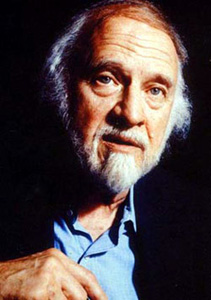
Richard Matheson (1926 – present)
“I had written a short story, which I basically had ripped off from a Richard Matheson novel called I Am Legend.” — George A. Romero on Night of the Living Dead
“When I was a child we had a story from the library called ‘The White Silk Dress.’ A child vampire told the story in the first person, and I thought it was quite wonderful. I was 8 or 9 years old and I never forgot it. I wanted to get into that vampire. That was the interesting point of view to me – the people right in the center of it all.” — Anne Rice on Richard Matheson’s “Dress of White Silk”
“The author who influenced me the most as a writer was Richard Matheson.” — Stephen King
“[Richard Matheson is] one of the most important writers of the twentieth century.” — Ray Bradbury
Although I am Legend is a vampire novel, it drastically changed the face of the zombie genre, and was the first novel to popularize the concept of a post-apocalyptic world.
Read: I am Legend, 1954
Uncle Stevie

Stephen King (1947 – present)
“I thought The Shining was just absolutely wonderful. Stephen King reaches all kinds of people. In the beginning he was just dismissed out of hand, which was terrible.” –Anne Rice
“People want to know why I do this, why I write such gross stuff. I like to tell them I have the heart of a small boy — and I keep it in a jar on my desk.” – Stephen King
Who hasn’t heard of Stephen King? He’s the most popular horror author of our time – arguably of all time. And gosh, isn’t he quotable?
Read: Carrie, 1973
Aunt Rice
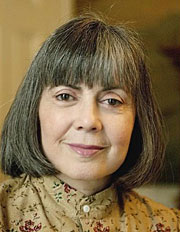
Anne Rice (1941 – present)
“I know nothing of god or the devil. I have never learned a secret nor found a cure that would damn or save my soul.” — Anne Rice
Anne Rice is fiercely intelligent. She combined that with quality writing and a juicy subject to create a resurgence of the vampire.
Read: Interview with the Vampire, 1976
Aunt Andrews
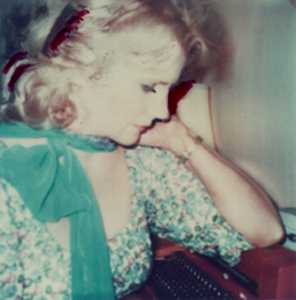
VC Andrews (1923 – 1986)
“The face of fear I display in my novels is not the pale specter from the sunken grave, nor is it the thing that goes bump in the night. Mine are the deep-seated fears established when we are children, and they never quite go away: the fear of being helpless, the fear of being trapped, the fear of being out of control.” –VC Andrews
The most modern popular gothic, Andrews went back to the roots of the genre but set it in modern day. Make no mistake, these books might be shelved under horror, but they are gothic through and through.
Read: Flowers in the Attic, 1979
Uncle Ketchum
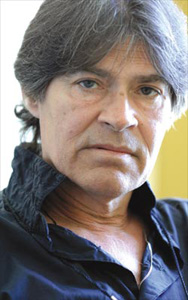
Jack Ketchum (1946 – present)
“Who’s the scariest guy in America? Probably Jack Ketchum.” — Stephen King
Another one of my personal favorites, Jack Ketchum is the epitome of contemporary horror. Prolific, critically acclaimed as well as wildly popular, well-spoken, and photogenic with unusually gorgeous hair, who wouldn’t love him?
Read: Off Season, 1980
Aunt Hamilton
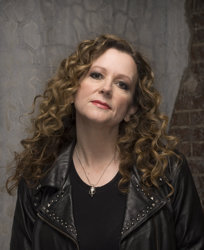
Laurell K. Hamilton (1963 – present)
“I wasn’t like most girls.” –Laurell K. Hamilton
Ah, Ms. Hamilton. Anyone who reads my blog knows how much I love and am inspired by her. She’s not strictly horror, but that’s actually why she’s on this list. LKH has had a huge part in the division and dispersement of horror into other genres. And although I adore her rule-breaking genre melding (her books could easily be shelved in horror, fantasy, mystery, or even erotica — her main vampire made my Top 10 Sexy Vampires list), I admit that I am hoping for a horror renaissance any day now. Hopefully brought about in part by yours truly.
Read: Guilty Pleasures, 1993
What do you think? I know I left off someone you love! Go ahead, be outraged. Share your faves who didn’t make the list in the comments below. Don’t forget to tell us why!























